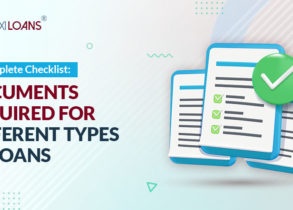Loans Vs Advances For Business: What Is The Difference
Aug 22, 2023

In the world of business, financing is a critical aspect that can significantly impact a company’s growth and success. When seeking financial assistance, entrepreneurs often face a common dilemma – whether to opt for a traditional loan or advance for their business. Both options come with distinct features, advantages, and disadvantages, making the decision-making process complex.
This article aims to shed light on the nuances of business loans and advances, providing valuable insights to help you make informed choices. By understanding the unique characteristics of these financial solutions, you can chart a path that best aligns with your specific needs and objectives.
First, let’s take a look at what opting for a loan or advance means for your business finances.
What is a Loan for Business?
Loans and advances are both credit financing options provided by financial institutions. However, a business loan is a financial product designed specifically for businesses and entrepreneurs to secure funding for various purposes related to their operations. It provides a sum of money that you can use for various purposes such as:
- Purchasing equipment or inventory
- Hiring new employees or expanding the business
- Renovating or improving existing facilities
- Covering operating costs or unexpected expenses
- Financing a new product or service
Loans are typically offered by banks, credit unions, online lenders, and other financial institutions. These loans may have fixed or variable interest rates and require the borrower to repay the loan amount along with interest over a specified period, usually through monthly instalments. The terms and conditions of these loans vary based on the lender, the creditworthiness of the borrower, and the purpose of the loan.
Features of Loans for Business
To make the right choice between loans and advances, we must first be well aware of their features. Business loans typically come with the following features:
- Loan Amount: Business owners can borrow a specific amount of money based on their financial needs and eligibility. A key difference between loans and advances is that the amount offered through a loan is higher than that of an advance.
- Repayment Terms: Lenders provide various repayment options, such as monthly instalments, quarterly payments, or flexible repayment schedules.
- Collateral: Some business loans require collateral, such as property or assets, as security for the loan.
- Purpose: These loans can fund various purposes such as expanding operations, purchasing equipment, managing working capital, and funding projects.
- Quick Disbursal: Many lenders offer fast approval and disbursal processes to meet urgent financial requirements.
- Credit Score: Lenders evaluate the creditworthiness of the business and its owners to determine loan eligibility and interest rates. This is a similarity that loans and advances happen to share.
- Flexibility: Some loans come with flexible terms, allowing businesses to make prepayments or avail top-ups based on their financial situation.
Benefits of a Loan for Business
Loans and advances also differ in the benefits they provide. Loans offer several benefits to entrepreneurs and business owners, including the following:
- Financial Flexibility: Business loans provide access to capital, enabling businesses to expand operations, purchase equipment, or invest in new projects.
- Improved Cash Flow: Loans can stabilise cash flow, ensuring that businesses have sufficient funds to meet their financial obligations and manage seasonal fluctuations. As credit financing options, loans and advances may both serve this purpose, but with a higher loan amount, the scope also increases.
- Build Credit History: Regular and timely repayment of loans helps businesses establish a positive credit history, leading to better borrowing opportunities in the future.
- Retain Ownership: Unlike seeking investors or raising capital through equity, loans allow owners to retain complete ownership and control over their ventures.
- Tax Benefits: The interest paid on business loans is often tax-deductible, reducing the overall tax liability of the business.
- Customised Solutions: Lenders offer various loan products tailored to specific industries and business needs, providing businesses with options that suit their requirements. Some financial institutions may offer customisation options for both loans and advances.
What is an Advance?
Loans and advances are similar in the sense that they are both credit services provided by financial institutions. An advance is a type of financial transaction where a borrower receives funds from a bank or financial institution before the actual due date of the payment. It is essentially a credit facility provided to customers to meet their short-term cash flow needs. The advance amount must be repaid by the customer on or before the agreed-upon maturity date, along with any applicable interest or charges.
Advances are commonly used by individuals and businesses to manage their cash flow fluctuations, finance urgent expenses, or take advantage of time-sensitive opportunities. Banks assess the creditworthiness and financial standing of borrowers before granting advances; this is a feature common to both loans and advances. The terms of repayment and interest rates vary based on the specific type of advance and the borrower’s credit profile.
Features of an Advance
Even though there are several different types of loans and advances that banks and other financial institutions offer to business owners, most of the advances come with the following features:
- Short-Term Nature: Most advances are short-term in nature, designed to meet immediate cash flow requirements and typically have relatively shorter repayment periods. This could be the prime difference between loans and advances. Loans may be long-term, whereas advances are short-term.
- Pre-Approved Limits: Some advances, like personal lines of credit or overdrafts, may come with pre-approved credit limits that customers can use whenever needed.
- Collateral or Security: Depending on the type of advance and the creditworthiness of the borrower, banks may require collateral or security to mitigate the risk associated with the debt. Loans and advances both share this feature.
- Flexible Repayment Options: Advances may offer flexible repayment options, such as demand loans that allow borrowers to repay the loan when they have sufficient funds.
- Purpose-Specific: Some advances, like export advances, serve specific purposes and may come with conditions related to their usage.
- Periodic Reviews: Banks may periodically review the performance and creditworthiness of borrowers with outstanding advances.
- Usage Limitations: Some advances, such as overdrafts, have usage limitations and you may only use them for specific types of transactions. This is a key difference between loans and advances as loans may be used for a wider range of purposes than advances.
Benefits of Advances
Being a short-term credit facility, advances have a bunch of different benefits to offer for business owners. Now that we have a thorough idea of the features of both loans and advances, let’s look at a few advantages advances offer:
- Quick Access to Funds: Advances provide borrowers with quick access to funds, enabling them to meet their immediate financial needs and cash flow requirements.
- Short-Term Solution: Advances are typically short-term in nature, making them suitable for businesses or individuals seeking temporary financial support rather than long-term commitments.
- Convenient Repayment Options: Many advances come with flexible repayment options, such as interest-only payments or the ability to repay the loan whenever the borrower has sufficient funds. This is a key difference between loans and advances in the sense that with loans, the repayment flexibility is limited to the amount and tenure of instalments.
- Support During Seasonal Fluctuations: Advances can be particularly beneficial for businesses experiencing seasonal fluctuations in income, providing support during lean periods.
- Competitive Interest Rates: Depending on the borrower’s creditworthiness, advances may offer competitive interest rates compared to other forms of borrowing.
Differences Between Loans and Advances
Loans and advances are two distinct forms of credit or financing options that you can choose for your business. So far, we have looked at the features and benefits that each provides for you when it comes to running your business finances efficiently. Now, let’s look at a few key differences between the two to help make the decision-making process easier:
| Category | Loans | Advances |
| Nature of Financing | A business loan is a lump-sum amount borrowed from a financial institution or lender, which the borrower must repay with interest over a specified period. | An advance is a pre-approved credit facility that allows borrowers to withdraw funds as needed to meet their immediate cash flow requirements. |
| Usage | Typically used for specific purposes, such as business expansion, equipment purchase, real estate acquisition, or long-term investments. | A main difference between loans and advances is that advances are more flexible and can fund various short-term needs, such as covering operational expenses, bridging cash flow gaps, etc. |
| Repayment | Repayment terms are fixed, including a set amount to be repaid each month or quarter, over a predetermined period. | Advances are often repaid through a portion of future sales or receivables. The repayment amount may fluctuate based on business revenue. |
| Tenure | Loans are generally long-term facilities, with tenures ranging from a few years to several decades. | Short-term in nature, usually repaid within a few months or up to a year. Both loans and advances can be for short terms but an advance usually cannot be used for longer than 24 months. |
| Collateral Requirement | Often require collateral as security, such as business assets, real estate, or personal guarantees. | May require minimal or no collateral, depending on the lender’s policies and the borrower’s creditworthiness. |
Loans vs. Advances: Which to Choose?
Loans and advances are both financing options that you can choose for your business. Each comes with distinct features and benefits that will help you choose between the two. However, it is not necessary to only choose one or the other for your business.
Advances are options that can be great for immediate and short-term business needs such as operational expenses. However, a business loan can offer you a higher loan amount and a longer tenure; making it perfect for endeavours with longer horizons such as expanding or purchasing a new plant.
While choosing between loans and advances, however, it is important to evaluate your situation. To make the right choice, you must understand what you need the finances for, how much funding you need and the purpose you need it for. Along with those, you also need to be aware of your creditworthiness, repayment capacity and the potential of your business.
Even though an advance is a great short-term financing option, it comes with the potential of slightly higher interest rates, based on your lender and credit situation. Loans for business come with flexible repayment options and customisable terms, but may often require collateral. This may not be ideal, especially if you are only starting off with your business.
It is also okay to choose different options among the two at different stages in your business, as and when needed. Whether it is loans or advances you are looking for, FlexiLoans has got you covered with a range of funding options. We offer you collateral-free business finance through a fully-online application process and minimal documentation. Check your eligibility with FlexiLoans and get your business the finance it needs.
Eligibility for Loans and Advances
Despite the differences between loans and advances, they are both credit options for financing your business. This is why most financial institutions have similar eligibility requirements for both. Although the eligibility differs based on the lender and the borrower’s situation, some standard criteria are:
- Business Type: For eligibility for a business loan or advance, the business must be a registered entity like a sole proprietorship, partnership, LLP, or company.
- Credit Score: A good credit score is important to qualify for advances or loans and demonstrate creditworthiness.
- Revenue and Profitability: Lenders may consider the business’s revenue and profitability to assess its ability to repay the loan or advance.
- Business Vintage: Lenders may require the business to be in operation for a minimum number of years to qualify for a loan or advance.
- Collateral: For a secured loan or advance, lenders may require collateral such as business assets, real estate, or personal guarantees.
In Summary
Financing your business as and when needed is an integral part of running a business. Today, we’ve looked into two options that can be viable business financing solutions: loans vs. advances. With both having a unique set of features and benefits, they are good credit options based on your situation and need for finance.
Loans can be a better long-term, high-amount option for longer-term business ventures like expansion. In contrast, advances may be better used for shorter-term needs like working capital. It is also important to look at other factors such as your repayment capacity and interest rates before deciding which to go for – a loan or advance.
Through FlexiLoans’ business finance solutions, you can access small business loans online and advances quickly and efficiently. Our online business loan application process and quick approval rates ensure that there is no delay in delivering the finance you need when you need it. FlexiLoans’ loans and advances require minimal documentation and offer collateral-free options with competitive interest rates. So, what are you waiting for? Apply now to take your business to the next level!
Check Out Business Loan EMI Calculator
FAQs
Q. 1 What is the difference between loans and advances?
Ans: A loan is an amount provided by banks and financial institutions to borrowers, which has to be repaid in a predefined pattern within a certain period. An advance is a credit facility where a borrower can access extra funds for their immediate requirements. The main difference between loans and advances is that loans are a more long-term option, with tenures as long as 10-15 years, whereas advances are a short-term arrangement, usually ranging from 3-24 months.
Q. 2 Do I need to have a good credit score to get a loan or advance?
Ans: Yes; while processing your application for a loan or advance, financial institutions usually look at your credit score as a way of assessing your repayment ability. So, a good credit score is essential to access a loan or advance. You can still access these options with a low credit score, but the lender may then require collateral or charge higher interest rates.
Q. 3 Can I use a personal loan for business purposes?
Ans: Yes, it is possible to use personal loans for business funding. But, opting for a business loan specifically comes with benefits such as higher loan amounts, quicker disbursal and lesser documentation requirements.
Q. 4 Is a cash advance the same as a business advance?
Ans: A cash advance is a credit facility provided by financial institutions through which you can access a set credit limit through individual credit cards. A business advance is a facility provided by financial institutions to business owners. These advances can come in many types such as overdrafts, demand loans, bridge loans, export advances, etc.
Q. 5 How are loans and advances added to an organisation’s balance sheet?
Ans: Loans and advances are typically recorded as liabilities on a company’s balance sheet.
Q. 6 What are the types of loans and advances?
Ans: There are various types of loans and advances that can finance a variety of projects. The most common type of loan is a traditional bank loan, which you can use for many purposes. Other loans include lines of credit, merchant cash advances, and short-term loans.
Q. 7 Are there any loans for individuals?
Ans: There are a variety of loans individuals can take out to satisfy their requirements, including personal loans, home loans, vehicle loans, gold loans, and education loans.
Q. 8 Should I take a loan or advance for my business?
Ans: Whether to opt for a loan or advance for your business depends entirely on your unique situation and the purpose for which you need the finance. Loans are a perfect source of funding for long-term goals such as business expansion and acquiring new business property as they can be repaid over the next 10-15 years and provide higher amounts based on your creditworthiness. Advances are better for immediate needs such as restocking inventory and meeting working capital needs. They are quicker to access and can be repaid over the next 6-12 months.









